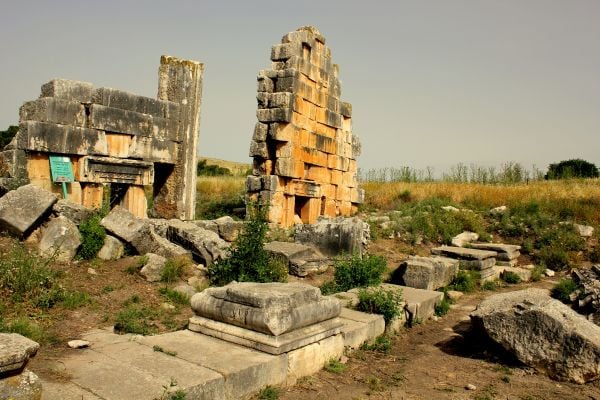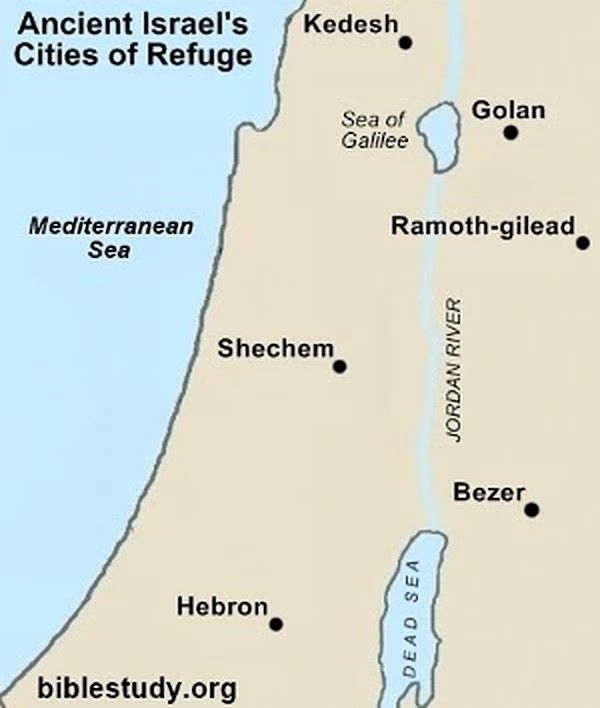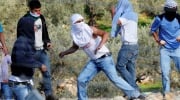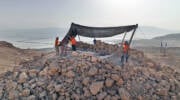
Few Israeli mapping experts and tour guides even know of the existence of Tel Kedesh.
By Nosson Shulman, Licensed Tour Guide
“G-d spoke to Joshua saying…Prepare for yourselves the cities of refuge, about which I spoke to you through Moses, where a killer may flee – one who kills a person through carelessness, unintentionally…They designated Kedesh in the Galilee in the mountains of Naphtali.” (Joshua 20: 1-7)
I have had the great privilege of publicizing sites in Israel that most people have never heard of. Today, we are visiting Tel (ancient) Kedesh, a site so hidden that most maps omit it.
Why?
Because few Israeli mapping experts and tour guides even know of its existence!
Today, the ruins of Kedesh are less than 3 km (1.8 miles) from the Lebanese border. In fact, one of the roads leading there offers gorgeous panoramic views of Lebanon!
Kedesh was originally a Canaanite city that Joshua conquered (see Joshua 12:22). Located in the territory of the Tribe of Naphtali (Ibid, 19: 37), it was made into one of the 48 Levite cities (Ibid, 21: 32).
Much can be said about this fascinating site, but what makes Kedesh extra special is that it is one of the Biblical cities of refuge (see Numbers 35 and Deuteronomy 19). G-d instructed Moses to command that the Children of Israel designate six cities; three in Israel and three in modern day Jordan, once their conquest of the land was complete.
These cities were designated as open-air prisons for people who accidentally killed someone (according to Torah law, intentional murder is a capital crime, and the city of refuge would not help him).
When the accidental killing occurred, the perpetrator would flee to one of these six cities, where he was protected from the blood relatives of the victims who might want to get revenge.
His sentence was indeterminate, lasting until the Kohen Gadol (High Priest), at the time of his conviction, died. Literally, if the High Priest died the next day, the sentence terminated with it.
Conversely, if the Kohen Gadol died 50 years later, the accidental killer’s sentence was 50 years.
According to Torah law, roads were required to have sufficient signage pointing in the direction of the nearest city of refuge. This was so that the person fleeing there could do so discreetly, lest he have to ask directions from someone who would prove to be a relative of the victim who would thus harm him.
The purpose of the city of refuge was not only punishment, but rehabilitation. Unlike in prisons today, where a person is separated from his family and housed with criminals (In many jails, even in first world countries, the only way to survive a sentence is by joining a violent gang), in a city of refuge, a person’s family joined him, and he was provided a home rent free.
The accidental killer lived among the holy Levites (all six cities of refuge were also Levite cities), who spent their days studying Torah and serving in the Temple. The good influence of the Levites would hopefully rub off on the accidental killer and make him a better person.
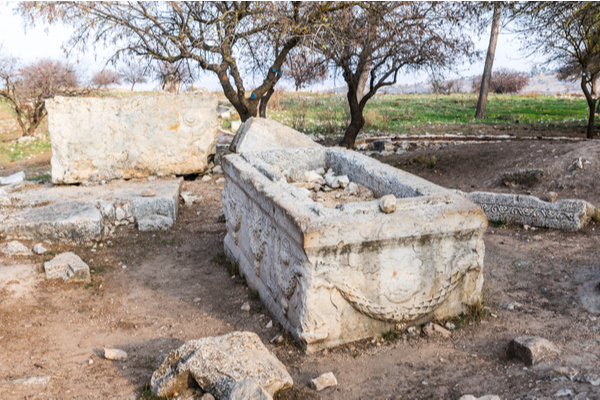
Many Roman sarcophagi (coffins) were found here. This one belonged to a wealthy nobleman. (Shutterstock)
In the 700’s BCE, Tiglath-Pileser III the King of Assyria, conquered Kedesh and exiled its Jewish inhabitants to modern day Iraq (the exiled inhabitants of northern Israel, which included Kedesh, constitute the famous “Ten Lost Tribes”).
Pagans from other parts of the Assyrian empire were brought in (2 Kings: 15-19) and the inhabitants of Kedesh were known for their hatred and harassment of Jews.
Kedesh was later conquered by the Maccabees (of Chanukah fame) between 143-145 BCE. In 63 BCE, the Romans annexed Israel and re-made Kedesh into a pagan city. With the Muslim conquest of the region between 636-640 CE, the city ceased to exist and has laid in ruins ever since.
Though this site is little known, it can easily be incorporated into a larger itinerary or even to break up a long drive, allowing you to stretch your legs at a site which takes little time to experience (a good 20 minutes here is plenty). On your next trip to Israel, it is certainly worth considering a visit to this storied Biblical treasure!
Nosson Shulman is a journalist and Licensed Tour Guide in Israel specializing in Biblical tours. To allow tourists to experience Israel during the Corona era, he created the new hit Israel tour video series, which brings Israel to the home of viewers by simulating actual tours. To check out his free sneak preview tour videos, click here. To view sample tour itineraries or to inquire about private tour opportunities with a personalized itinerary on your next trip to Israel, click here.
Do You Love Israel? Make a Donation - Show Your Support!
Donate to vital charities that help protect Israeli citizens and inspire millions around the world to support Israel too!
Now more than ever, Israel needs your help to fight and win the war -- including on the battlefield of public opinion.
Antisemitism, anti-Israel bias and boycotts are out of control. Israel's enemies are inciting terror and violence against innocent Israelis and Jews around the world. Help us fight back!
